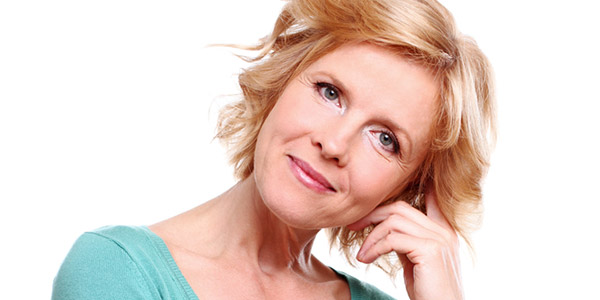Menopause is defined as the time when your period stops for good. It occurs when your ovaries stop producing oestrogen and progesterone. The message given to women is that menopause is the beginning of their decline into old age. Menopause is a natural part of ageing, but it’s important to realise that it’s not a ‘use by date’.
While many women are familiar with the common symptoms of menopause, many still find themselves unprepared for the emotional repercussions that it can have. Adjusting to menopause on an emotional level is as important as managing the physical side effects. So, here is a savvy woman’s guide to menopause that may help you to adjust to this natural part of life.
Identify when it has started
Menopause typically begins 12 months after your last period has occurred, with most women experiencing it between 45 and 55 years of age (the average age is 51). However, about one per cent of Australian women experience early menopause – that is, before the age of 40. The menopause process can last four to six years.
Alleviate the symptoms
Relief from physical symptoms of menopause can be managed through medicines prescribed by your doctor, including hormonal replacement therapy. Herbal or complementary therapies are also available, although their safety and efficacy needs more research. However, for many women menopause symptoms may be managed by:
- exercising regularly and keeping fit, particularly by doing weight-being exercise, which strengthens bones
- eating a nutricious diet and maintaining a healthy body weight, as weight gain is common during menopause
- listening to their body by relaxing and doing things that will help ease stress.
Talk about it
It can help to talk to a doctor when it comes to adjusting to this change, as they can guide you on how to manage your symptoms and moods. Sharing your feelings about your menopause with trusted family and friends is also beneficial, particularly if you know someone who is going through it as well. Sometimes it can just help to know that someone else is going through the same experience.
Remove the myth
You can play a role in removing preconceptions around menopause for younger women by sharing your experiences with your daughters and granddaughters. This can help them understand what to expect later in life. Women don’t tend to worry about menopause until it happens to them, but all women can be part of sharing the truth about their experience and what to expect. By being open about menopause, we remove the stigma around it.
You are not your menopause
Menopause signifies the end of your ability to become pregnant, but it does not have to affect your identity as a woman or as a sexual being. In fact, many women report having improved sexual function and gratification, knowing that they no longer have to worry about becoming pregnant. Menopause has its benefits as well, since conditions like PMS, heavy bleeding, migraines, fibroids and endometriosis are no longer problems.
If you would like more information about managing your menopause, please visit Jeanhailes.org.

